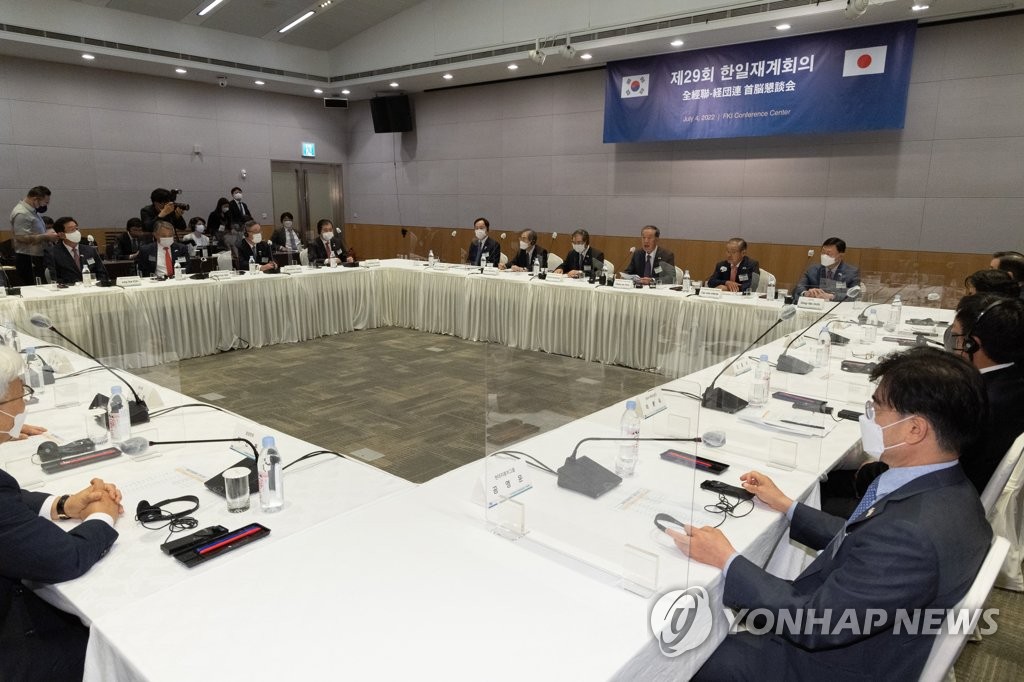- California Assembly OKs highest minimum wage in nation
- S. Korea unveils first graphic cigarette warnings
- US joins with South Korea, Japan in bid to deter North Korea
- LPGA golfer Chun In-gee finally back in action
- S. Korea won’t be top seed in final World Cup qualification round
- US men’s soccer misses 2nd straight Olympics
- US back on track in qualifying with 4-0 win over Guatemala
- High-intensity workout injuries spawn cottage industry
- CDC expands range of Zika mosquitoes into parts of Northeast
- Who knew? ‘The Walking Dead’ is helping families connect
S. Korean biz lobby says to consider ‘every measure’ for envisioned youth fund under forced labor solution
A major business lobby in South Korea said Monday it will consider all measures to flesh out a plan South Korea and Japan have agreed to push for to form a joint fund to support the youth under Seoul’s proposal on compensating Korean victims of Japan’s wartime forced labor.
The Seoul government earlier announced the decision to compensate 15 forced labor victims through a government foundation funded with donations from Korean companies, instead of Tokyo paying them as ordered by Seoul courts.
The government also proposed creating a “future youth fund,” as part of the resolution measures, to serve as a bridge to revitalize private exchanges, especially among the younger generations.
The government offered the Federation of Korean Industries (FKI) and the Japan Business Federation (Keidanren) to lead efforts to establish the fund.
“The FKI and Keidanren have discussed various ways to develop the South Korea-Japan relations in a forward-looking manner, and we will begin more detailed discussions on how to build future-oriented ties based on the agreement reached between the two governments with regard to the forced labor issue,” the FKI said in a statement.
“We’ll consider every measure, including discussion on the fund, on a zero-base basis,” the FKI said.
The South Korean business circles hailed the government’s plan and the commitment shared by the two countries to resolving Tokyo’s export restrictions on Seoul.
Hours after the announcement on the compensation plan, Seoul said it has decided to halt the process for the complaint it has lodged with the World Trade Organization on Japan’s export controls of key industrial materials to Seoul.
The export curbs have been seen as retaliation for the South Korean Supreme Court’s rulings that ordered Japanese companies to compensate Korean victims. Japan has refused to pay the compensation to the Korean victims, citing a 1965 deal that normalized the bilateral relations.












